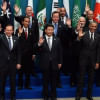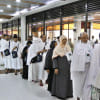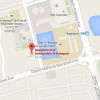Why are our passport services so insufferable?

Recently, I walked out of, or rather escaped, a passport office in Chattogram after failing to complete the biometric enrolment for myself and my two sons. At that time, I was filled with rage, frustration and shame just thinking about what the citizens of Bangladesh have to suffer to avail such a basic but crucial service. Really, why do we have to run a gauntlet for something so necessary as a passport?
My children reside abroad, and we are dual citizens of that country and Bangladesh. When I compare the due processes to get a passport of these two countries, it's just depressing to see what goes on at Bangladesh's passport offices. The neverending queues, the unbearable heat, the lack of customer service, and the ensuing chaos – I don't even know how I should start my traumatising story. It's mind-boggling to think that an office is probably contributing towards making its service worse!
A new Bangladeshi passport can cost between Tk 4,025 and Tk 13,800, depending on the type, size, length of validity and urgency. Since it's not a free service, we are all customers who are entitled to a facility that is simple, comfortable and swift. But our passport offices are the complete antithesis of this. It's evident that the government is generating heaps of revenue from the thousands of customers availing passport-related services every day. So, we have the right to ask why this dismal condition of service still persists, and point our fingers at those responsible.
Applying for a passport in the other country is a simple online or postal process. We don't even need to send a passport-size photo; it's as simple as taking a photo in front of a white background – that, too, with your phone – and uploading it to the site. Now, I don't expect the process to be so simple in Bangladesh, and acknowledge that implementing this will take time. But considering the importance of such a service and the substantial revenue the country rakes in, Bangladesh shouldn't be this abysmally behind the curve.
Why don't the authorities open more service centres to prevent overcrowding, and the chaos that accompanies it? We have a well-established National ID database, which contains biometric data of a large part of the population. Surely this database can be used to streamline the process to get a passport? Why must children spend an entire day (missing out on classes and recreation) amid the horrendous office environment when the authorities can just set automated appointments? While we're at it, why are the service centres so understaffed, and why does the staff misbehave with paying customers? Why is there no proper system in place to set a time for the customer to arrive, queue up, go through the various processes and exit, being satisfied by the fact that they got their money's worth? There are so many more questions I could ask, but I would run out of space.
As we are all aware, our country is going through a difficult financial situation amid rising inflation and depleting foreign exchange reserves. We are very quick to highlight the garment industry and its crucial role in our economy. However, millions of hard-working people make equal (if not more) contributions by going abroad and toiling in unforgiving conditions, with the goal to send their earnings back to Bangladesh. The most important service these expats probably avail within Bangladesh is those related to the passport office. I leave it up to the readers to work out the significance of passport services when considering this situation.
As for me and my kids, we did not complete the application process and have no plans to go back and try again. It's a shame because the Bangladeshi passport reflects our identity, which we like to keep updated and in hand. But I'm not going to put my children through hell and back for it!
Abdullah Iftekhar Chisty is an entrepreneur who splits his time between Bangladesh and the UK.

 For all latest news, follow The Daily Star's Google News channel.
For all latest news, follow The Daily Star's Google News channel. 










Comments